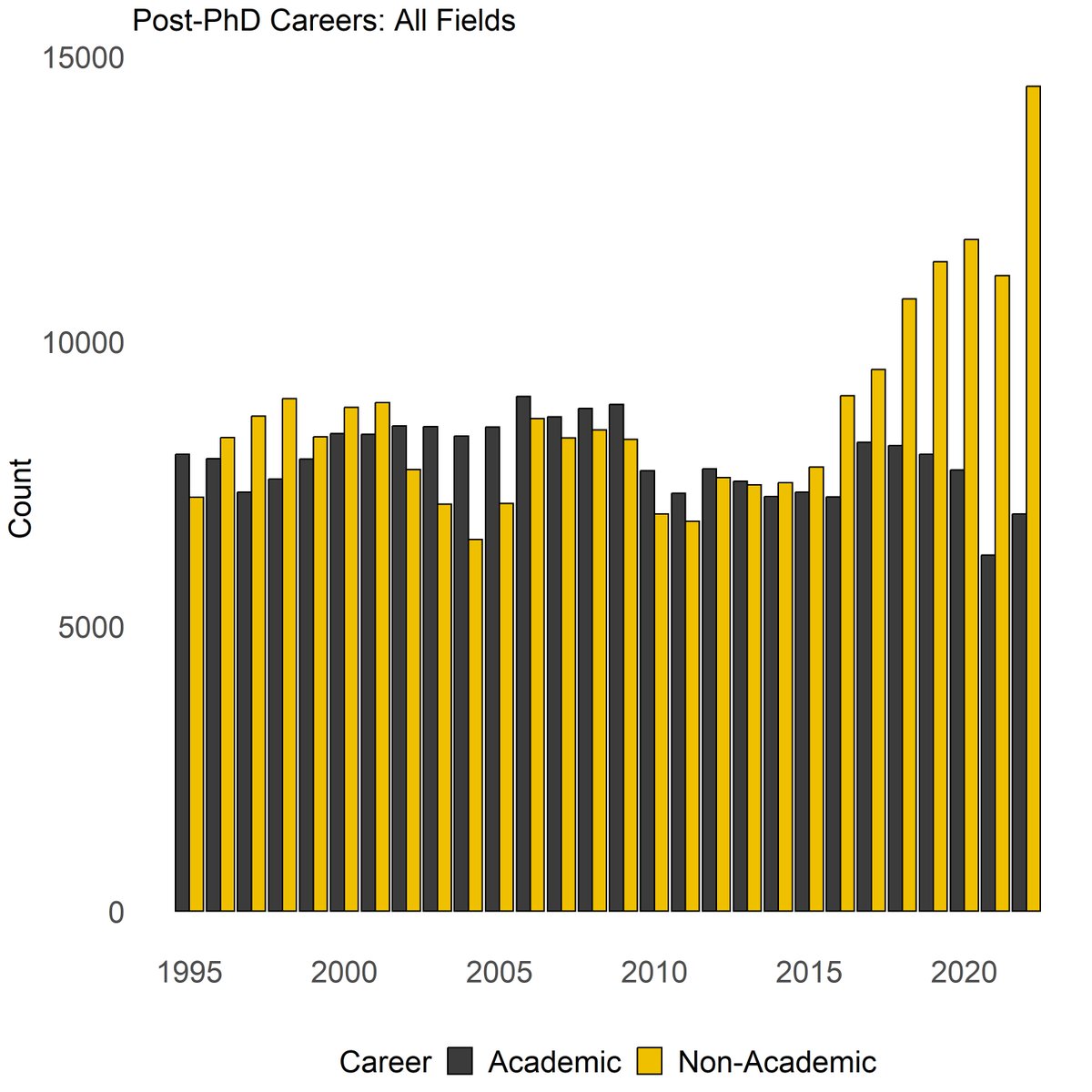A solid resume is necessary to getting an #altac job. But I’ve seen so many resumes from academics that don’t understand the assignment.
You can’t just list all your experience. You need to quantify it.
Here’s how to get started (you’ll want to save this tweet 😉): #AltAcChats
You can’t just list all your experience. You need to quantify it.
Here’s how to get started (you’ll want to save this tweet 😉): #AltAcChats
Companies want to see that you can deliver “value” - that you will improve their business.
I never used to think about my experience in terms of “value” or “amount of services delivered”. It felt weird to me. But this is the language of business that you need in a resume. 2/
I never used to think about my experience in terms of “value” or “amount of services delivered”. It felt weird to me. But this is the language of business that you need in a resume. 2/
So for a first exercise, try to quantify your experience. Think about:
- # of participants tested
- # of hours using a method
- # of students taught (or # of hours teaching or # money paid for your course)
- # of grant money received
- # of researchers managed
Examples:
3/
- # of participants tested
- # of hours using a method
- # of students taught (or # of hours teaching or # money paid for your course)
- # of grant money received
- # of researchers managed
Examples:
3/
Example #1:
Instead of: Wrote a dissertation on emotional development.
Write this: Led all aspects of a 5-year research project on emotional development. Designed and analyzed data from 10+ quantitative research studies. Tested 1000+ participants using eye tracking.
4/
Instead of: Wrote a dissertation on emotional development.
Write this: Led all aspects of a 5-year research project on emotional development. Designed and analyzed data from 10+ quantitative research studies. Tested 1000+ participants using eye tracking.
4/
Example #2:
Instead of: Taught courses in psychology.
Write this: Delivered over $800k in instructional services. Prepared course materials and graded assignments for 400+ students. Received an average evaluation rating of 4.5 (very good) out of 5 across 8 courses.
5/
Instead of: Taught courses in psychology.
Write this: Delivered over $800k in instructional services. Prepared course materials and graded assignments for 400+ students. Received an average evaluation rating of 4.5 (very good) out of 5 across 8 courses.
5/
Example #3:
Instead of: Published papers, presented research at conferences, and gave interviews.
Write this: Communicated insights to different audiences in 15+ empirical research papers, 10+ presentations at scientific conferences, and 10+ interviews at news outlets.
6/
Instead of: Published papers, presented research at conferences, and gave interviews.
Write this: Communicated insights to different audiences in 15+ empirical research papers, 10+ presentations at scientific conferences, and 10+ interviews at news outlets.
6/
Example #4:
Instead of: Managed a lab.
Write this: Hired and developed a team of 10+ researchers. Managed over $750k in research funding. Oversaw the completion of 15+ quantitative and qualitative research projects.
7/
Instead of: Managed a lab.
Write this: Hired and developed a team of 10+ researchers. Managed over $750k in research funding. Oversaw the completion of 15+ quantitative and qualitative research projects.
7/
This exercise was a good starting point for me when writing my first resume. Another pro tip:
Reach out to folx who currently have the job you want. Ask to see their resumes as an example. They know how to write about their skills.
My UX resume: ashleyruba.com/s/Ruba-UX-Resu… 8/
Reach out to folx who currently have the job you want. Ask to see their resumes as an example. They know how to write about their skills.
My UX resume: ashleyruba.com/s/Ruba-UX-Resu… 8/
Last pro tip: keep your resume to one page.
Recruiters spend <10sec looking at a resume - you have to communicate your skills quickly. If in doubt, don’t include it on your resume. Briefer is always better in the business world.
Add more tips in the comments! Happy writing 💛
Recruiters spend <10sec looking at a resume - you have to communicate your skills quickly. If in doubt, don’t include it on your resume. Briefer is always better in the business world.
Add more tips in the comments! Happy writing 💛
• • •
Missing some Tweet in this thread? You can try to
force a refresh









